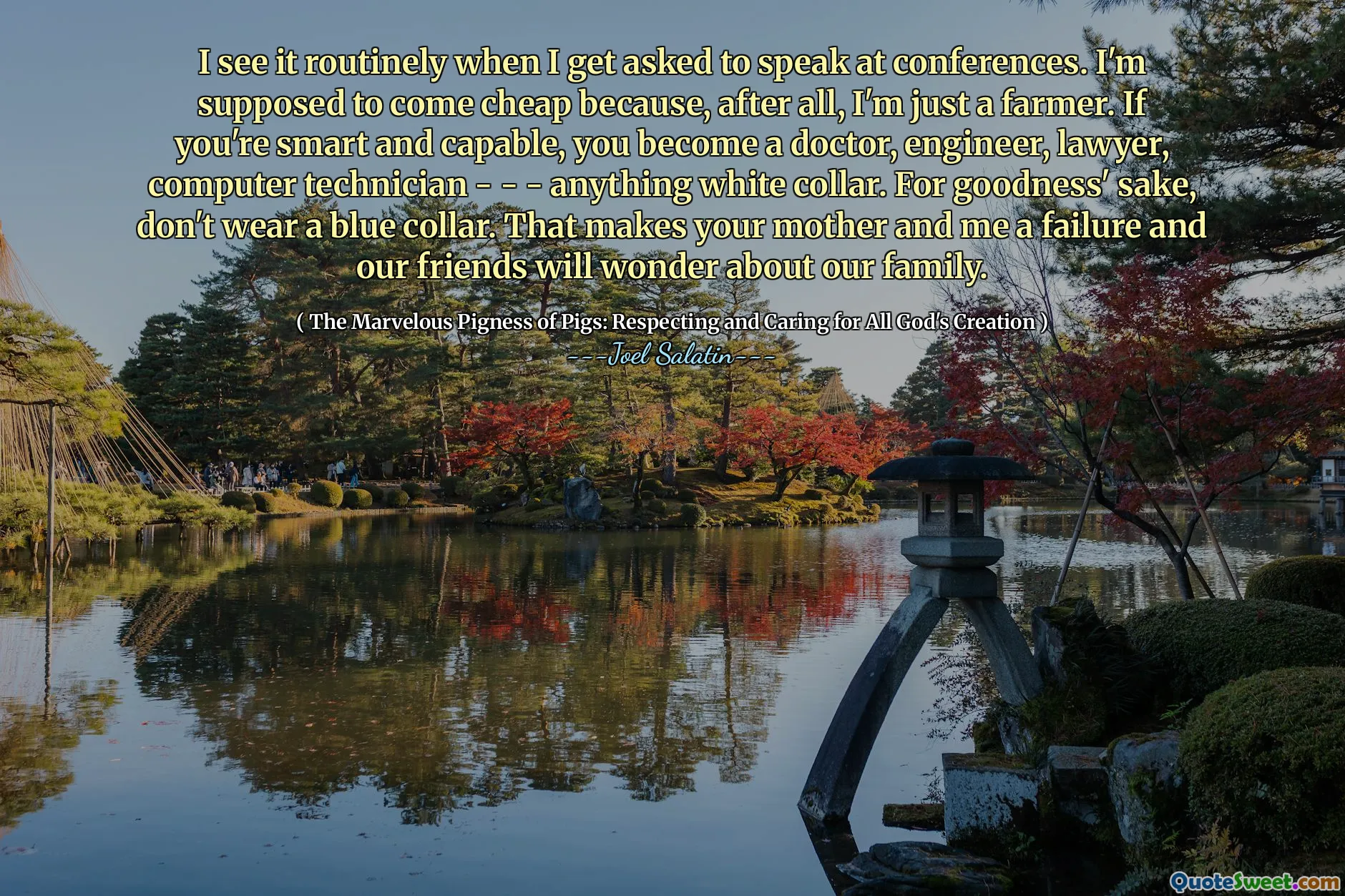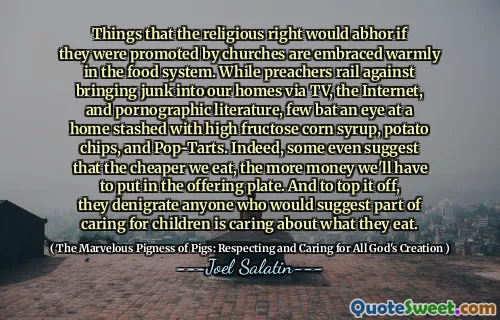
I see it routinely when I get asked to speak at conferences. I'm supposed to come cheap because, after all, I'm just a farmer. If you're smart and capable, you become a doctor, engineer, lawyer, computer technician - - - anything white collar. For goodness' sake, don't wear a blue collar. That makes your mother and me a failure and our friends will wonder about our family.
This quote sheds light on the societal devaluation of blue-collar work and the deeply ingrained biases that influence how we perceive different professions. The speaker highlights a common perception that white-collar jobs are more prestigious and desirable, while blue-collar roles—such as farming—are seen as inferior or less respectable. This viewpoint often stems from societal narratives that equate success with high-income, office-based careers, inadvertently dismissing the vital contributions of essential workers who sustain our food systems and infrastructure. The speaker's tone underscores a personal pain, revealing the internalized shame and societal pressure that cast farming and other blue-collar occupations as failures or lesser options. Such attitudes can discourage young people from pursuing trades or careers rooted in physical labor and craftsmanship, despite these roles being fundamental to our society’s well-being. Recognizing this bias prompts reflection on the importance of valuing all forms of work equally, understanding that dignity and respect are not determined solely by the nature of a job but by its contribution to community and sustenance. The quote invites us to challenge the stereotypes that marginalize skilled labor, appreciate the depth of craftsmanship behind blue-collar professions, and foster a culture that honors all types of work as crucial and honorable. Valuing diversity of occupations not only enhances societal respect but also ensures that we recognize the interconnectedness of all work in creating a balanced, respectful community. As the quote poignantly reveals, breaking down these barriers depends on shifting perspectives and respecting the dignity of every laborer—be they blue-collar or white-collar.







